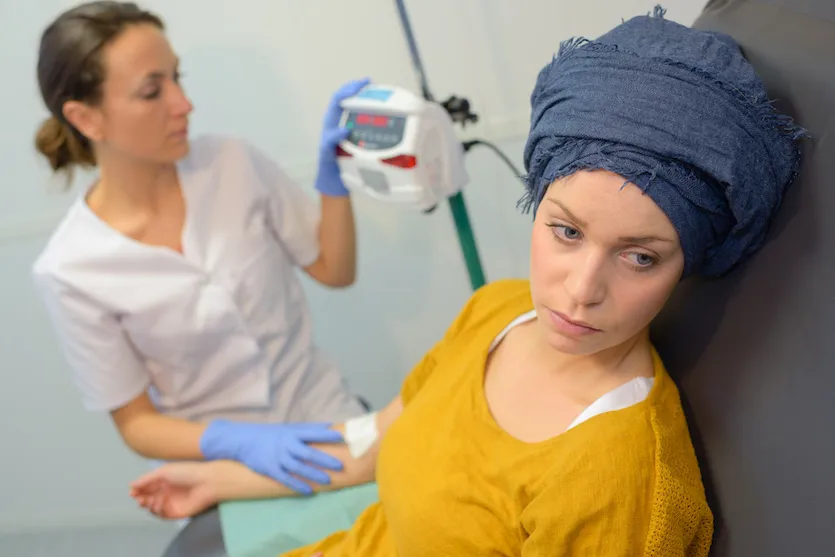10 Common Chemotherapy Myths: What You Need to Know
Chemotherapy is one of the most well-known treatments for cancer, but it is also surrounded by numerous myths and misconceptions. Understanding the facts about ...

Cancer, a word that strikes fear into the hearts of many, is not a singular entity but a complex assortment of diseases, each demanding a unique approach to treatment. The evolution of cancer care has led to the development of combination therapy, a multifaceted treatment strategy designed to attack the disease from multiple angles. This approach often incorporates surgery, radiation therapy, and chemotherapy. Here, we delve into the integral role of chemotherapy within this combination, highlighting its significance in the broader context of multimodal cancer treatment.
Combination therapy, as the name suggests, combines various treatment modalities to enhance the overall effectiveness of cancer treatment. This strategy is grounded in the principle that different treatments work through distinct mechanisms, thereby providing a comprehensive attack against cancer cells. The goal is to maximize cancer cell eradication while minimizing damage to healthy tissues.
Chemotherapy, a cornerstone of cancer treatment, involves the use of drugs to destroy cancer cells. Unlike surgery or radiation therapy, which target specific areas, chemotherapy works throughout the body, making it effective against cancers that have spread. This systemic treatment can kill cancer cells that have migrated far from the original tumor, offering a crucial line of defense in the fight against metastatic disease.
The synergy between chemotherapy and other treatment modalities is a key aspect of its value in combination therapy. For instance, chemotherapy can shrink tumors before surgery or radiation therapy, making them easier to remove or target. This neoadjuvant chemotherapy can significantly improve treatment outcomes. Conversely, adjuvant chemotherapy, administered after the primary treatment, aims to eliminate any remaining cancer cells, reducing the risk of recurrence.
The use of chemotherapy in combination therapy is highly personalized, tailored to the specific type of cancer, its stage, and the patient's overall health. Oncologists meticulously design treatment plans to achieve the best possible outcomes, often involving a multidisciplinary team of specialists. This personalized approach ensures that the treatment regimen is as effective and tolerable as possible.
Chemotherapy has evolved significantly over the years, with the development of more targeted drugs that specifically attack cancer cells with fewer side effects. This progress has enhanced its integration into combination therapy, allowing for more aggressive treatment strategies with manageable side effects. Moreover, advancements in supportive care have improved patients' ability to undergo chemotherapy, further solidifying its role in comprehensive cancer treatment plans.
Despite its efficacy, chemotherapy's inclusion in combination therapy is not without challenges. Side effects, ranging from mild to severe, can affect patients' quality of life and their ability to continue treatment. Oncologists must carefully balance the aggressive treatment of cancer with the management of these side effects, often requiring adjustments to the treatment plan.
The future of combination therapy, with chemotherapy at its core, is promising. Ongoing research is focused on developing more effective, less toxic chemotherapy drugs, and on identifying biomarkers that predict how well a particular chemotherapy will work for an individual patient. This precision medicine approach aims to further personalize cancer treatment, ensuring that each patient receives the most effective combination of therapies tailored to their unique cancer and genetic makeup.
In the multifaceted battle against cancer, chemotherapy remains a vital weapon within the arsenal of combination therapy. Its ability to work systemically complements localized treatments such as surgery and radiation, providing a comprehensive approach to cancer care. The journey of cancer treatment is one of constant evolution, with each step forward offering new hope to patients and their families. For those seeking cancer treatment, consulting with a skilled radiation oncologist in Hyderabad or exploring options for chemotherapy in Hyderabad can be a crucial step towards a tailored, effective treatment plan. The collaborative efforts of oncologists, researchers, and patients continue to push the boundaries of what is possible in cancer care, with combination therapy at the forefront of this transformative journey.
Partager cet article